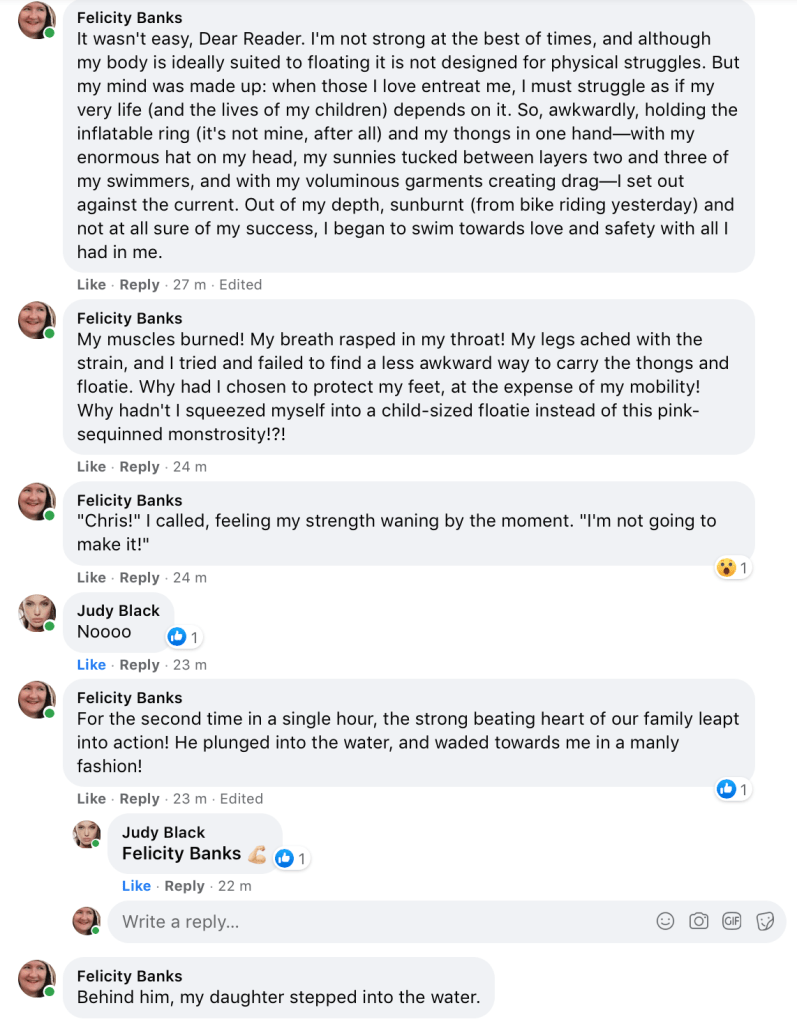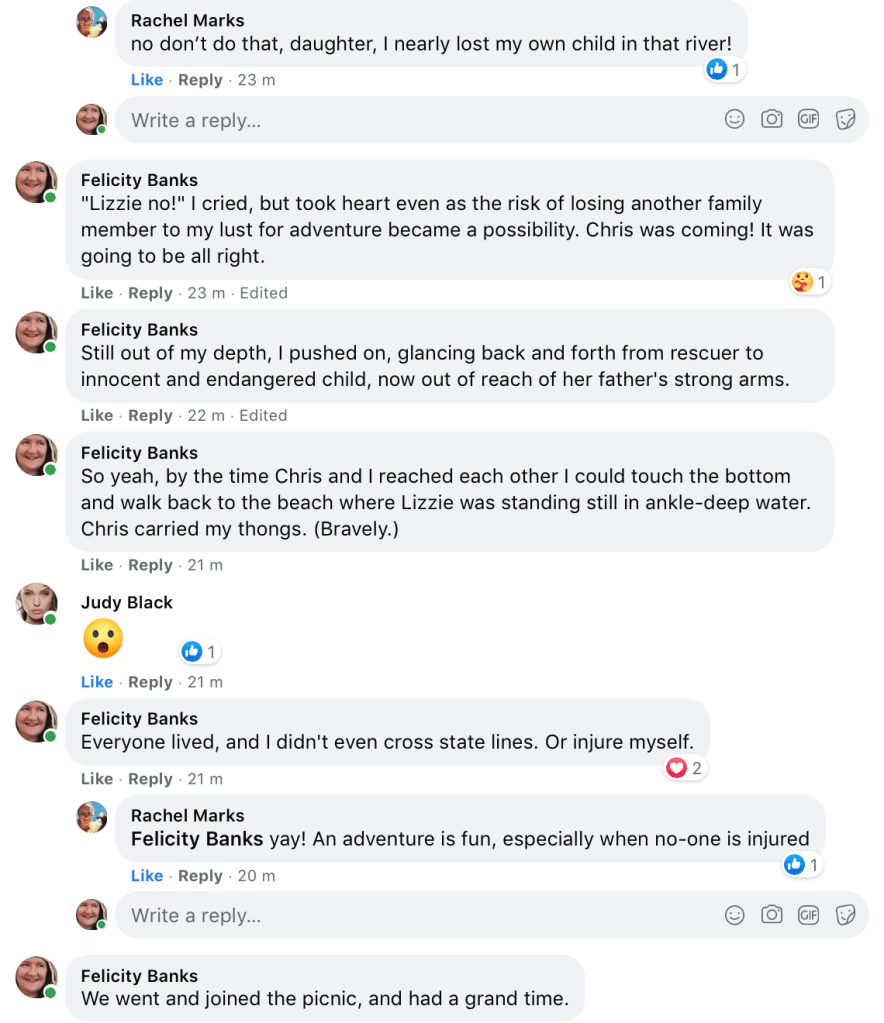7 Things to Know About Chronic Illness
7 Things to Know About Chronic Illness
(from someone who is fat, female, mentally ill, and chronically ill with fibromyalgia including migraines)
- Medical gaslighting is a huge issue, especially for women (especially pregnant women, fat women, mentally ill women, those who struggle to communicate clearly in English, and most of all women of colour). ‘Gaslighting’ means convincing someone that something true is not true eg When a patient reports severe pain but a doctor tells them the pain is normal (because the doctor doesn’t immediately find an easy solution either due to laziness, lack of knowledge, or unconscious bias against women/chronically ill people/people of colour/etc).
This is often literally fatal. Women of colour are the most vulnerable to medical gaslighting, which is a factor in these awful statistics (these are all focusing on Aboriginal people, but you can extrapolate for refugees):
2. Women’s medical health is poorly studied. Medical researchers are aware that male and female bodies react differently to medication, so a shocking number of trials only study men in order to simplify results. Many medical conditions that are specific to women (eg to do with periods or childbirth) have barely been studied, and chronic diseases like fibromyalgia that effect more women than men are often dismissed as psychological conditions (the modern equivalent of Victorian-Era doctors describing any female patient’s issues as ‘hysteria’). Around 10% of women suffer from endometriosis, a condition in which period tissue grows in or on other organs. It causes extreme pain, infertility, and many other issues. One of my friends had severe endometriosis and was told by her mother and by doctors not to complain so much about her bad periods. When she attempted to have a child in her early twenties, the internal scarring was so severe that she was not able to conceive naturally. That was 100% preventable if anyone had listened to her. It’s not like endometriosis is even rare! And guess what? One of the treatments is COUNSELLING. Do you think doctors would recommend counselling for a broken leg? Another woman I know bled heavily, including clots, from the rectum during every period. A gynaecologist told her that her body was “special and unique” and advised her not to seek further treatment. Rectal bleeding can be a symptom of bowel endometriosis, or bowel cancer.
3. Many so-called “invisible” illnesses such as migraines, chronic fatigue, fibromyalgia, and depression cause weight gain. Some people eat badly in order to deal with constant pain; some have hormonal imbalances; some take medication that causes weight gain; etc. Western society reacts very differently to those who are underweight than those who are overweight. An underweight person is accepted/celebrated (usually—plenty of people feel free to comment on a woman’s “health” aka weight, even if they are complete strangers). An overweight person is always condemned, and that is especially true in the medical community as “concern trolling” is the usual form of fatphobia ie people say they are concerned about a woman’s weight when really they simply dislike looking at her (or are fighting so hard to stay in an acceptable weight range themselves that they cannot cope with someone else being fat and happy). With doctor’s extra power, this gets extremely harmful extremely fast. Personal story: I am unable to diet because it sends my mental health into very dangerous territory within 24 hours. I have had weight-loss surgery (surgery is extremely serious) recommended to me by: several GPs, a diabetes specialist, a neurologist, a dermatologist, nutritionists, and many more. You’ll note that none of them are even surgeons. One side effect of weight loss surgery is that if the patient overeats, they get diarrhea. Since I am highly intolerant of many vegetables due to being intolerant of FODMAPs and salicylates, I get diarrhea a LOT (and all the more if I eat “healthy” food). It would definitely not stop me eating junk food. Yet surgery gets recommended to me by almost every medical professional I see, regardless of their specialty. It is dumb and dangerous. No doctor has ever mentioned to me the dangers of dieting (which are considerable, and far greater than simply being overweight).
4. For all these reasons, it takes a long, long time to get a diagnosis for any kind of chronic illness (plus I bet doctors would rather it was something neat and solvable). During that time the patient will constantly be exhausted by medical visits and tests while simultaneously being told that they’re just lazy or making it all up. This is also true of neurodiverse conditions such as autism. It is common for a diagnosis to take 5-10 years. So if someone has a chronic illness, (a) Believe and support them unconditionally, including taking them to specialists and probably several specialists in the same field until you find one that actually listens to them. (b) Know that they’re in this for the long haul. Sometimes life just sucks are there aren’t easy answers—especially when someone has been through trauma, and their body has been permanently damaged in a mysterious way as a result. But a diagnosis is worth fighting for IF the patient is physically and psychologically able to fight.
5. Be aware that medical stuff is genuinely terrifying, and exhausting, and that there is often a lot of trauma that comes from merely seeing doctors (or existing in a world that judges a person based on their weight, their poor grooming—because chronically ill people are too tired to look good—their gender, and most of all the colour of their skin.
6. Gotta Catch ‘Em All! Someone with one chronic condition is likely to have (or get) more. The body gets stressed, and it gets sicker in new and exciting ways. When someone with one condition starts thinking they have more than one, they’re not crazy or a hypochondriac or trying to get attention. They’re almost certainly right. (Yes, even the mentally ill ones. We KNOW we’re mentally ill and we’re used to spending every day sorting rational from irrational thoughts.)
7. Disability or chronic illness is not the end of the world. Way too much media says, “I’d rather die than be disabled” and that’s really not helpful! Yes, be sympathetic if someone wants sympathy, but don’t bother ranking whether someone’s life is better or worse overall. I’m clinically depressed and at the same time I’m kind of content and happy with my life. Weird but true. Most of the time, the constant barrage of negative thoughts is something I am strong enough to keep at bay. Most disabled or chronically ill people never get better, and that’s okay. Life can still be good, and the fight to make it a bit better is usually worth it.

Whistledown, eat your heart out
I got opinions, and you’re not all going to like them.
I am, however, utterly correct in every particular.
Content warning: discussion of rape and rapey behaviour
SPOILERS FOR SEVERAL SEASONS/BOOKS OF BRIDGERTON!!!!
I’m up at 3am because I simply must finish the book I’m reading—not because I love it, but because I loathe it.
One of the biggest TV shows so far this year is “Bridgerton”, a regency romance which is absolutely hilarious and also definitely NOT something one should watch with one’s parents (it’s MA+ for all the sex scenes). I watched it; I loved it. I hated the patronising, controlling, hypocritical, and emotional older brother (although he had a few nice moments and improved SLIGHTLY throughout the season).
I wanted more.
It’s already been renewed for a second season, and possibly eight seasons altogether since it’s based on a series of eight books. I figured I might as well try one of them, and I was surprised and delighted by it. The wittiness was all there, and beautiful. It was FUN. I was only a teensy bit disappointed that the books are all about white people, while the TV is delightfully inclusive of people of colour (or at least, inclusive of the British equivalent of African Americans—I don’t recall seeing any Asians, which is jarring to an Australian).
It turns out that each book focuses on a different sibling from the Bridgerton family. Given that it’s a romance series and the second-oldest sister was vocal in her desire to do something with her life other than marry and have children, I was a little saddened at her likely fate (married and popping out babies) but I was cautiously optimistic that she’d marry someone who encouraged and enabled her. Perhaps he’d be studying, and teaching her everything he learned? Perhaps they’d travel the world together? I dunno. It seemed that a lesbian romance was unlikely, which is a real shame but a familiar one.
And I discovered that Book 2 (The Vicount Who Loved Me) focused on that awful older brother, Archibald (or Anthony? Whatever, I don’t care). In the TV show’s first season, he basically ruins all his sister Daphne’s marriage prospects by refusing to let anyone near her except an ancient, ugly man who attempts to kiss/rape her, and then force her to marry him (which would mean lots and lots of rape, obviously). When Aaron’s mother gives him a stern talking-to about his hypocrisy (because he’s sleeping with a mere opera singer) he goes and dumps the opera singer—which includes financially ruining her, because he has been ‘keeping’ her (apartment and all) and in fact had repeatedly promised her that he would always protect and look after her. (Later on he has a change of heart, but by then she’s attached herself to another man in order to survive, because being a woman sucks.) He also gets talked out of duelling (and probably killing) Simon not once but twice—and the second time only relents because Daphne announces that she and Simon are engaged (sacrificing her dream of having children in the process). All the many MANY times Daphne begs him not to kill Simon are ignored; she’s only able to save Simon’s life by marrying him. (Great job being a caring older brother, Adam.)
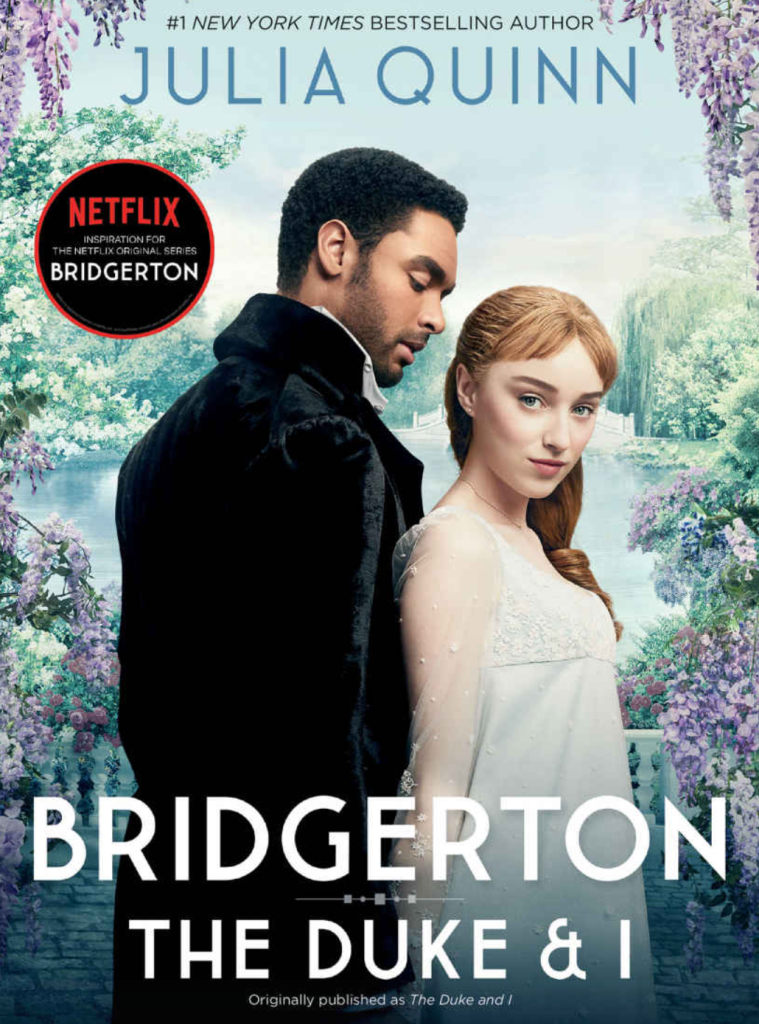
Abraham’s not quite as awful in Book 1 (The Duke and I), but he’s still arrogant, annoying, and determined to kill anyone who makes his sister cry (including her husband, after they’re married), while not realising that the principle cause of her misery is himself and that everything he does to “defend” her makes her life worse. Which she tells him. In words. Repeatedly.
So I hesitated before reading Book 2, but I was kind of dreading the TV equivalent so it seemed like I should read the book and let it win me over.
Reader, it did not win me over.
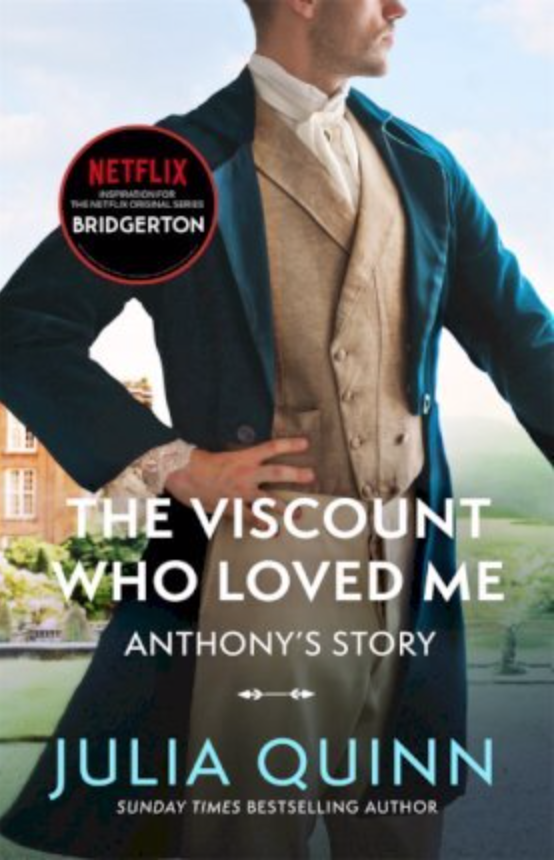
Augustus’s beloved dad died when Armando was eighteen, and his father was thirty-eight. It was brought on my a bee sting, so Archer is now deathly afraid of bees. He’s also so obsessed with his hero worship of his dad that he’s secretly convinced that he’ll die by thirty-eight.
That’s super dumb, but okay. Romances thrive on dumb obstacles that can be overcome by a simple conversation or a bit of therapy. So his silly superstition combines with his active sex life to make him decide that okay, sure, he’ll get married—but he will make sure it’s NOT a love match. Because reasons (one of them being that he definitely plans to keep sleeping around—which the main girl, Kate, hears him say aloud to one of his mistresses).
So then there’s the problematic trope of ‘enemies to lovers’ in which he and Kate bicker constantly. Except it’s more than bickering, because he decides to marry Kate’s younger, prettier sister based on her reputation as being nice enough, pretty, and moderately intelligent. And Kate hates him, first for his reputation as a rake and then for the rude stuff he says about her, women in general, and her sister. He enjoys making her furious. But he also believes all the sexist, heartless stuff he says.
Uhhh… I don’t mind bickering, and I adore witty banter (which this mostly isn’t), but sexist is sexist. Kate is right to hate him. And he hates her, but who cares what he thinks?
But then he has a sexy dream about her, and can’t stop thinking about her sexually. He does a coupla nice things (such as comforting her during a panic attack), and a coupla awful things. He grows to heartily enjoy making her angry, and then find he also likes scaring her. Looming over her, locking her alone in a room with him, and kissing her. (She’s into it a LITTLE BIT which he crows over—and then continues courting her sister.)
No.
Forcing yourself on a woman (to any degree) and/or deliberately scaring her is not sexy. Never has been, never will be.
Anakin is so, so rapey. Both generally and literally. He doesn’t technically rape her (yet… I’m not finished the book) but he physically abuses her a bunch. Invading her space, not letting her leave, kissing her, etc. When they’re married and she asks to put off having sex for a few days, he repeatedly tells her how she’s his wife and his possession and he can lock her in their room and rape her as much as he likes (not that he describes it as rape).
Pretty soon, it wasn’t just Alfredo I hated. It was the author. I’m confident she won’t ever read this, so I can speak freely: the odd little (and not so little) problematic moments in the first book are clearly just the beginning of a world of problematic, harmful, and abusive tropes that this writer is clearly very very fond of.
Plus she’s just dumb, sometimes. I’m only in Book 2 and there are hugely repetitive aspects. I have a feeling they’ll be in every book, too.
- An extremely innocent heroine, who has never been kissed (fine) and never felt sexual attraction in her life (really??), and who is considered terribly plain. (In the TV show, Daphne is widely proclaimed to be super hot from Day 1—which is somewhat more believable, especially with the ridiculously gorgeous cast.)
- A much richer, higher-ranking man who is very sexually experienced. It is abundantly clear that the advice that “reformed rakes make the best husbands” is something the author actually believes. I don’t, particularly when it comes to sexually inexperienced women. It was cute once. Twice is problematic. And I bet there are six more of the same.
- Through some stupid circumstance, the main couple must marry. Each of them wants to, but believes the other doesn’t.
- The night before the wedding, the woman’s mother does a fairly bad job of explaining sex to her daughter.
- During the wedding night, the woman describes the sensation as “odd” in between raptures. (I found it all very sweet and actually realistic the first time. The second felt like sex by numbers.) At least once per book, preferably more, thrusting is described as an “ancient rhythm”.
- Every single character, male or female, is constantly threatening (and often actually doing) violence on the others. It was cool when Daphne punched out her attacker in Series 1 of the TV show. It was dumb when the men started beating each other up. It was super, super dumb when all the Book 2 characters did the same thing, whether male or female.
I haven’t finished Book 2 yet but I’m assuming the following:
5. The married couple has lots of great sex, then a huge fight due to the man’s daddy issues. The woman assumes the marriage was always doomed due to her low self esteem.
6. Fight is resolved, probably by 1-2 conversations, and they live happily ever after.
Edit: Yeah, I finished the book. There was an author note about how a lot of men with dads who die young become convinced that they’ll die young too. I don’t have a huge problem with that. I do have a problem with Anton being a horrible person though.
Also? Massive spoilers in the books’ bonus epilogues. But at least that means I can prepare for certain relationships on the horizon.
Ugh. Arnold just really really sucks, y’all. And so does Julia Quinn.
There, I said it.
Gonna go read a nice cleansing speculative fiction story now.
Today’s Adventure
It’s been a while since I made a post here, but this is a good one…. here’s how my day has been, as reported on facebook.
9:00am Sunday 10 January, 2021


3:00pm, Sunday 10 January, 2021




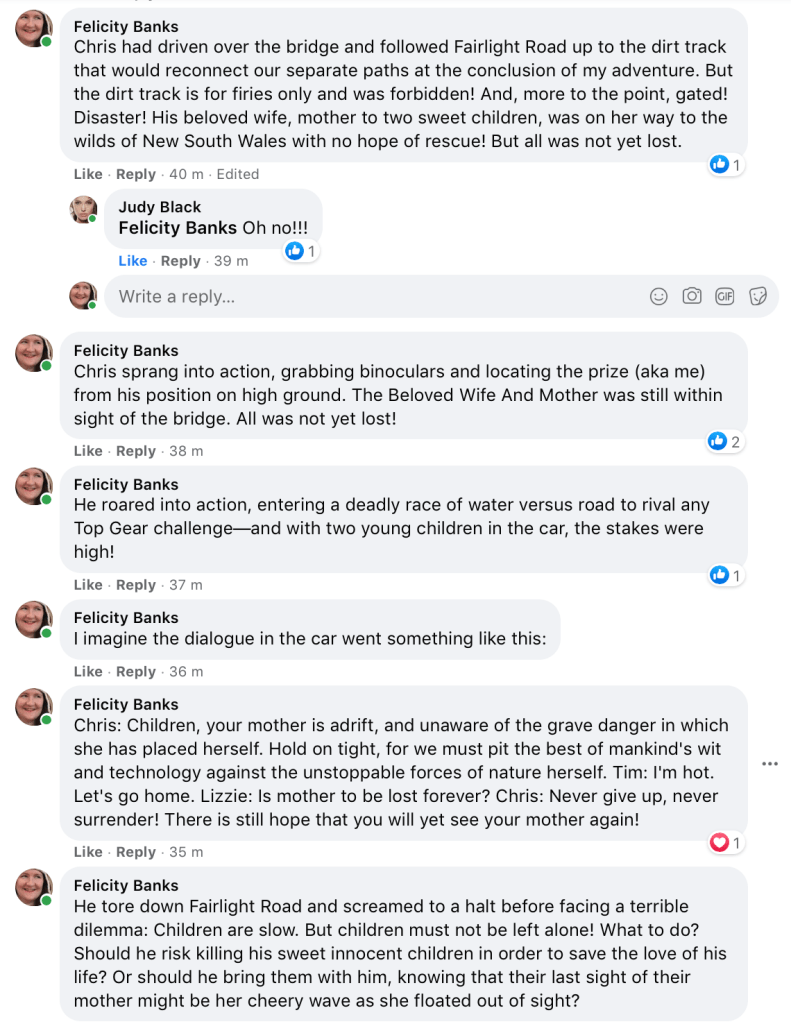
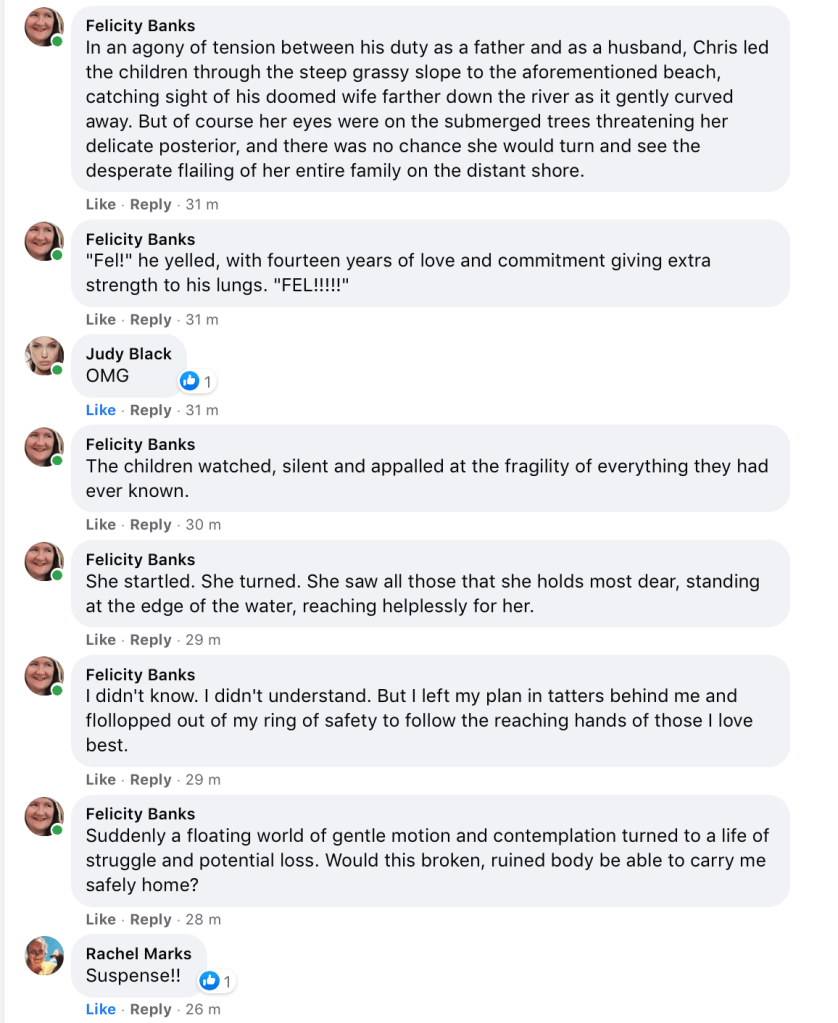
NB: International readers please note that “thongs” in Australia refers to flip-flops aka a type of plastic shoe often worn at the beach since they’re so easy to slip on and off.
